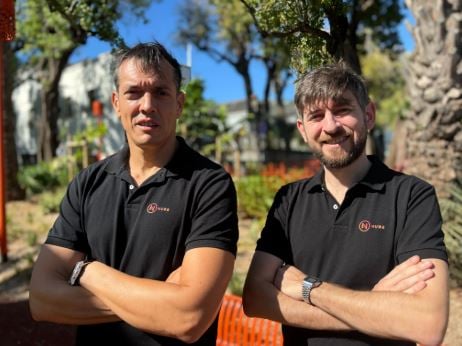We have prepared context and insights about this week’s leading news. The stories are:
- HUB2’s $8.5M Series A
- TalentQL’s expansion of AltSchool to Europe
- More fintechs comply with stamp duty in Nigeria
P.S: This newsletter went out to our email subscribers yesterday
HUB2’s $8.5M Series A
Think Stripe, but for Francophone Africa. That’s the vision of HUB2, an Ivorian fintech startup that raised $8.5 million in a Series A funding round led by TLcom Capital, to expand its operations from six francophone markets to the rest of the region.
HUB2 offers a unified API that offers payment solutions to neobanks, payment companies, remittance services, and crypto providers. Its client roster includes nearly every fintech expanding operations to francophone Africa like Ghana’s Zeepay, Tanzania’s NALA, and fellow Ivorian neobank, Djamo.
Recall, that in 2020, Stripe acquired Paystack following an $8 million Series A. HUB2 can be likened to the Francophone version of Paystack.
Paystack founders had been very vocal about their desire to build a product as lovable and rich as Stripe. Fun fact: Stripe considered calling itself “Paystack” in the beginning.
Similarly, HUB2 Founder and CEO, Ashley Gauzere has drawn a parallel to what his company is building to Stripe. In a chat with TechCrunch, he said, “The one issue I wanted to solve in French-speaking Africa…was creating infrastructure and unifying payments in the region like a Stripe-like platform.”
If Stripe’s Africa expansion strategy doesn’t include two players, one for Anglophone and the other for Francophone, then, maybe Thunes will acquire HUB2 in the future. Thunes is a global cross-border payments platform and its founder, Eric Barbier was one of the investors in the HUB2’s Series A just as Stripe was an investor in Paystack’s Series A.
Whatever the case is, HUB2’s projected 1,300% growth to €1 billion TPV, in the last two years, makes for an exciting story to watch.
TalentQL takes AltSchool to Europe
TalentQL, a leading pan-African talent training and recruitment company, is taking its flagship product, AltSchool, international. The company recently announced its expansion into Europe, with Malta serving as the initial launchpad.
AltSchool, an online learning platform, has already trained over 100,000 students in various fields, including engineering, business, and cybersecurity. By expanding to Europe, it aims to address talent shortages in the region and provide individuals with the skills they need to succeed in the modern workforce.
To cater to the European market, AltSchool will adopt a hybrid approach, combining online learning with in-person training sessions.
With its strong track record in Africa and its strategic expansion into Europe, AltSchool is well-positioned to become a leader in online education and talent development.
Yesterday, Binance Africa announced its partnership with AltSchool to train over 500 tech talents by offering scholarships.
Moniepoint and OPay begin charging stamp duty
Nigeria’s Finance Act 2020 mandated an electronic money transfer levy (EMTL) which is a stamp duty on electronic funds transfer.
Neobanks in the country have struggled with adoption because their promise to customers is usually “no fees”. So, when Kuda Bank, whose former motto was “Bank of the Free” introduced stamp duty in July 2022, users felt betrayed.
So, we wrote a detailed explainer about it which helped calm some nerves. The stamp duty is a ₦50 charge on inflows of ₦10,000 and above, with some specific conditions for exclusion. You can come back to read more about the specifics in our explainer.
Yet, others like Moniepoint, OPay and PalmPay, with over 50 million retail customers between them, were yet to implement the stamp duty.
Here is the catch: Any bank that implements stamp duty becomes unfavourable to customers, and such customers will easily jump ship to the fintech without it.
So, each player has held out long enough until the Government could enforce ALL depository institutions’ compliance.
It looks like the day has finally come, as Moniepoint and others announced last month that they will be charging stamp duty. One can only feel for the players like ALAT by Wema (2020), V Bank (2021), Carbon and Kuda (2022), who complied earlier with the regulation. If nothing, they saved on penalties which is one of the punishments for non-compliance.
Nigerians have expressed mixed reactions to the implementation of the EMTL. While some understand the government’s need for revenue, many have criticised the timing and potential impact of the levy. Again, concerns have been raised about the government’s ability to effectively utilise the collected funds and whether the levy will truly benefit the citizens.
Get passive updates on African tech & startups
View and choose the stories to interact with on our WhatsApp Channel
Explore




